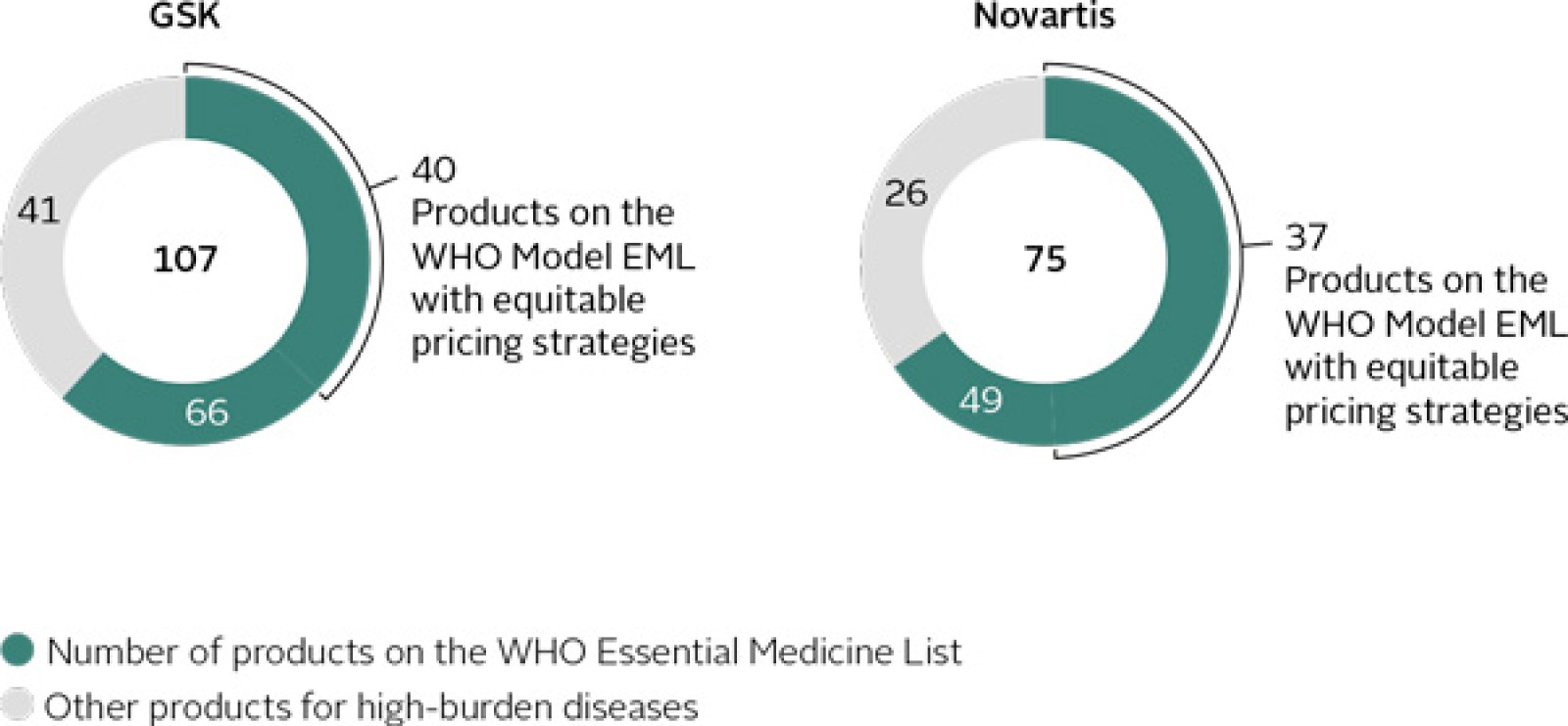Which pharmaceutical companies have the most essential medicines and vaccines?
The WHO model EML provides a list of minimum medicine needs for a basic health-care system, listing the most efficacious, safe and cost-effective medicines for priority conditions. The new analysis has been published to coincide with the launch of the report by the Lancet Commission on Essential Medicines for Universal Health Coverage.
Five companies market the most essential medicines
The top 20 pharmaceutical companies collectively submitted 778 medicines and vaccines for assessment for the latest Access to Medicine Index. In total, 451 of these (58%) are listed on the EML. The majority of these (274, or 61%) are from either Sanofi, GSK, Novartis, Merck KGaA and Pfizer. These companies each have more than 40 products on the EML.
GSK and Novartis price more EML products equitably
Companies are taking a range of actions that impact the accessibility of many of these 451 products. Novartis and GSK are applying equitable pricing strategies (where affordability is taken into account) for more EML medicines and vaccines than any other company (37 and 40, respectively). In addition to affordability actions, non-exclusive voluntary licences have been agreed for some essential HIV/AIDS and hepatitis C medicines. These include abacavir for HIV/AIDS, from GSK via ViiV, and sofosbuvir for hepatitis C, from Gilead. Companies also donate essential medicines and vaccines, in cooperation with WHO, including of Mectizan, by Merck & Co., Inc.*, and praziquantel, from Merck KGaA.
Figure 1. GSK and Novartis: apply equitable pricing to the most essential medicines and vaccines

*Merck & Co., Inc. is known as MSD outside the US and Canada. Merck KGaA’s healthcare division is known as EMD Serono in the US and Canada.